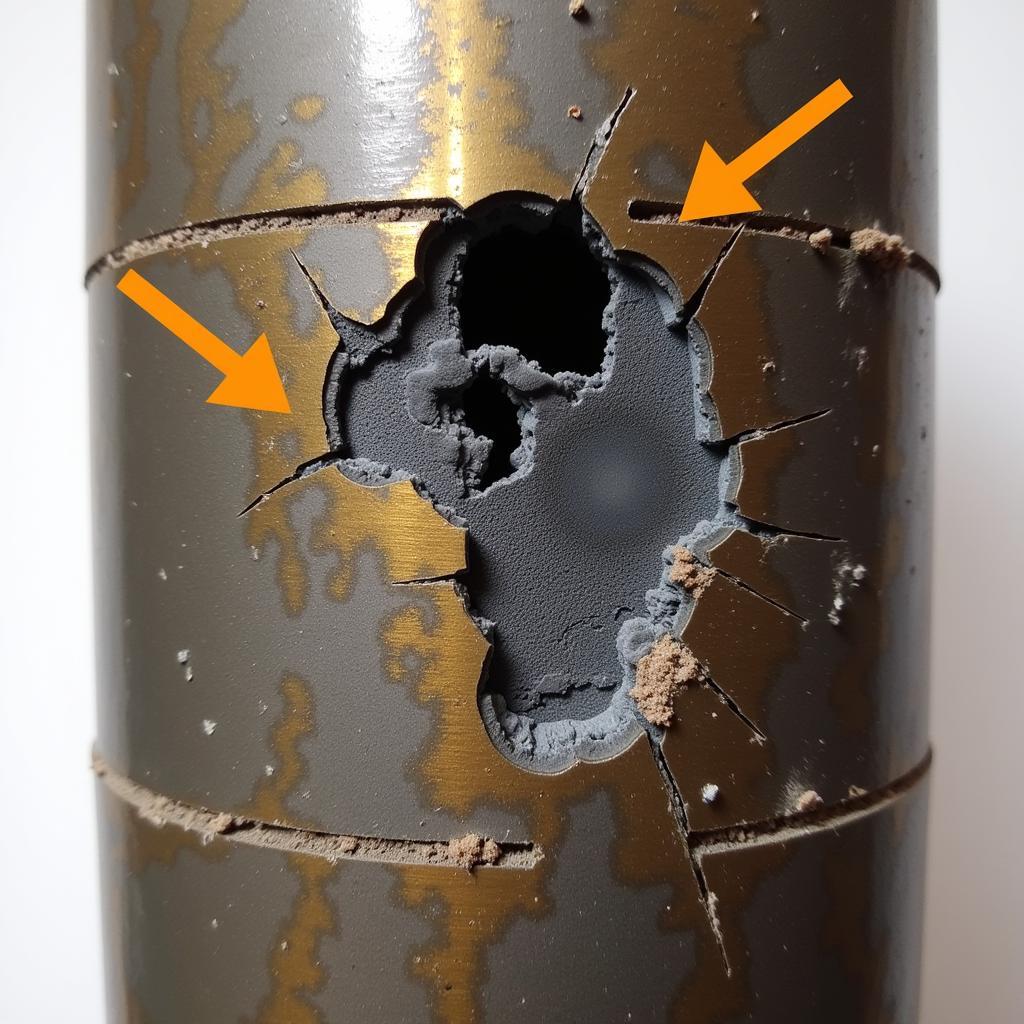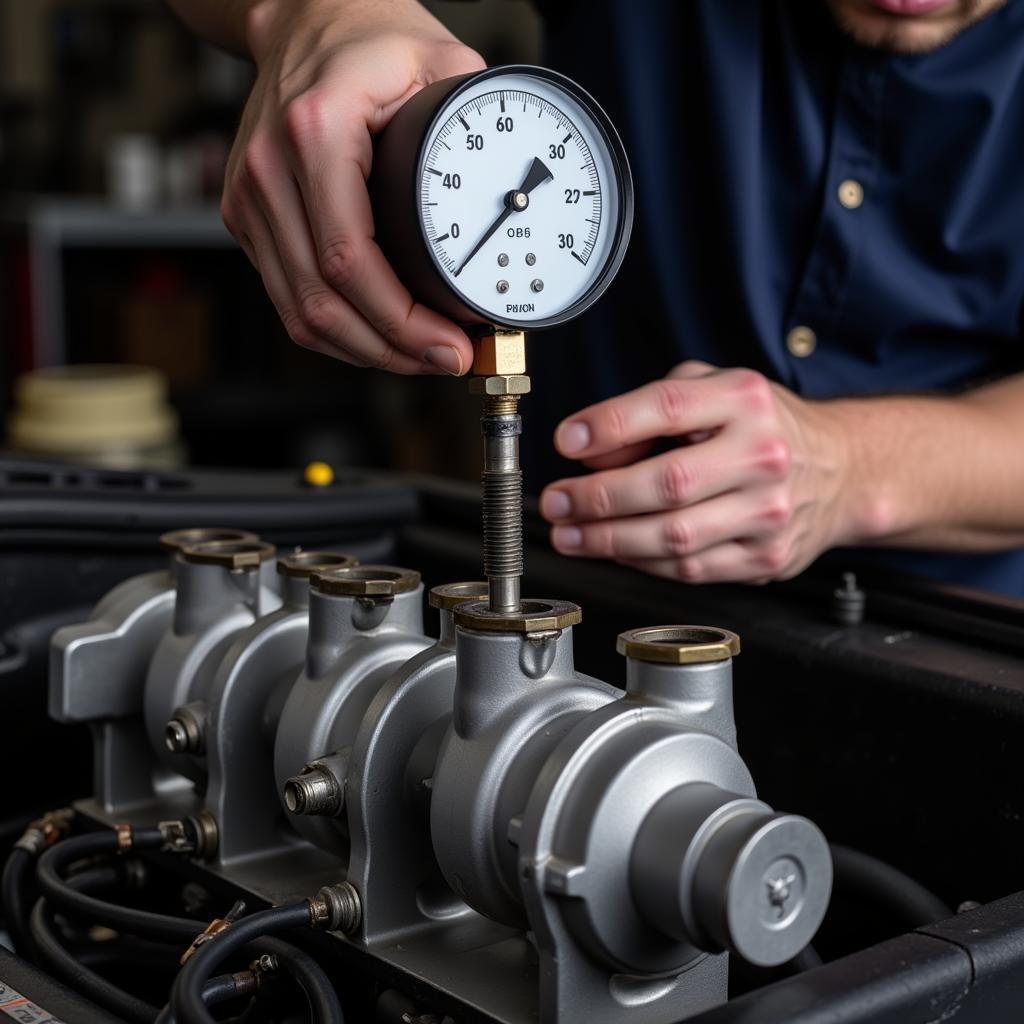A vehicle’s engine is a complex piece of machinery, and maintaining its many systems is crucial for optimal performance. One common issue that car owners and mechanics encounter is related to compression. Compression Car Problems can significantly impact engine performance, leading to a loss of power, poor fuel economy, and even engine damage if left unaddressed.
This comprehensive guide will delve into the intricacies of compression car problems, equipping you with the knowledge to identify, understand, and potentially resolve these issues.
What is Engine Compression, and Why is it Important?
In essence, engine compression refers to the ability of a cylinder to compress the air-fuel mixture before ignition. This pressure is vital for the efficient combustion of fuel and the subsequent generation of power. When your engine is running smoothly, each cylinder should have a specific compression ratio, ensuring optimal performance.
Several components contribute to maintaining healthy engine compression:
- Piston Rings: These rings form a seal between the piston and cylinder walls, preventing combustion gases from escaping.
- Cylinder Walls: The smooth surface of the cylinder walls is essential for proper piston ring sealing.
- Valves and Valve Seats: Intake and exhaust valves regulate the flow of gases into and out of the cylinder. A tight seal between the valves and their seats is crucial for maintaining compression.
- Head Gasket: This gasket seals the gap between the cylinder head and the engine block, preventing coolant and oil from leaking into the combustion chamber.
Common Causes of Compression Car Problems
A drop in compression can signal several underlying issues within your engine. Recognizing the symptoms and understanding the potential causes is the first step towards a solution.
1. Worn Piston Rings
Over time, piston rings naturally wear down due to constant friction. This wear can compromise the seal between the piston and cylinder walls, allowing combustion gases to escape and leading to a loss of compression.
Symptoms of Worn Piston Rings:
- Blue exhaust smoke, particularly during acceleration
- Excessive oil consumption
- Reduced engine power
2. Damaged Cylinder Walls
 Cylinder Wall Scoring and Damage
Cylinder Wall Scoring and Damage
Scratches or scoring on the cylinder walls can also disrupt the piston ring seal, contributing to compression loss. This damage can occur due to:
- Overheating
- Lack of lubrication
- Use of incorrect engine oil
- Foreign object entering the cylinder
Symptoms of Damaged Cylinder Walls:
- Low compression readings across multiple cylinders
- Engine misfires
- Knocking or tapping sounds from the engine
3. Valve Problems
Worn or damaged valves and valve seats can prevent a tight seal, leading to compression loss. Causes include:
- Burnt or warped valves due to overheating
- Worn valve seats
- Improper valve adjustment
Symptoms of Valve Problems:
- Engine misfires
- Rough idling
- Decreased engine performance
4. Blown Head Gasket
A blown head gasket is a serious issue that can lead to significant compression loss. This failure can occur due to overheating, a warped cylinder head, or a faulty head gasket installation.
Symptoms of a Blown Head Gasket:
- White exhaust smoke, often sweet-smelling
- Overheating
- Coolant loss
- Oil in the coolant or vice versa
Diagnosing Compression Car Problems
 Compression Test Using a Gauge
Compression Test Using a Gauge
If you suspect a compression car problem, a proper diagnosis is crucial. A qualified mechanic will typically perform the following steps:
- Visual Inspection: Checking for any visible signs of leaks, damage, or wear in the engine bay.
- Compression Test: This test measures the pressure inside each cylinder, providing valuable information about the engine’s internal health.
- Leak Down Test: This test helps pinpoint the source of compression loss by introducing compressed air into the cylinder and observing where it escapes.
Addressing Compression Car Problems
The solution for a compression car problem depends on the underlying cause and the severity of the issue.
- Minor Compression Loss: In some cases, a simple tune-up, valve adjustment, or replacement of worn piston rings might be sufficient.
- Moderate Compression Loss: Honing the cylinder walls to remove minor imperfections and installing new piston rings might be necessary.
- Severe Compression Loss: Significant damage to the cylinder walls, valves, or a blown head gasket typically requires extensive engine repair or even a complete engine rebuild.
Preventing Compression Car Problems
While some wear and tear are inevitable, you can take steps to prolong the life of your engine and prevent premature compression loss:
- Regular Oil Changes: Use the recommended oil grade and change it according to the manufacturer’s schedule.
- Maintain Coolant Levels: Ensure your coolant system is functioning correctly and keep coolant levels topped up.
- Address Engine Issues Promptly: Don’t ignore warning signs like unusual noises, smoke, or performance issues.
Seeking Professional Help
Diagnosing and addressing compression car problems often requires specialized tools and expertise. If you suspect your vehicle is experiencing compression issues, it’s crucial to consult a qualified mechanic for a thorough inspection and accurate diagnosis.
Remember, early detection and timely repairs can save you from costly engine damage down the road. For expert advice and reliable solutions to your car problems, reach out to the trusted professionals at AutoTipPro. You can contact us at +1 (641) 206-8880 or visit our office located at 500 N St Mary’s St, San Antonio, TX 78205, United States.
Frequently Asked Questions
1. Can I drive my car with a compression problem?
It’s not advisable to drive your car with a known compression problem. Driving with low compression can lead to further engine damage and potentially leave you stranded.
2. How much does it cost to fix a compression problem?
The cost of repair varies significantly depending on the cause and severity of the compression loss. It can range from a few hundred dollars for minor repairs to thousands for a complete engine rebuild.
3. How long can an engine run with low compression?
There’s no definitive answer as it depends on the severity of the compression loss and the overall condition of the engine. However, continuing to drive with low compression will inevitably lead to further engine damage.
4. Can a compression test damage my engine?
A properly performed compression test by a qualified mechanic poses minimal risk to your engine.
5. Can I fix a compression problem myself?
While some minor compression issues might be tackled by experienced DIY enthusiasts, it’s generally recommended to seek professional help. Engine repairs require specialized knowledge and tools to ensure a successful and safe outcome.




Leave a Reply